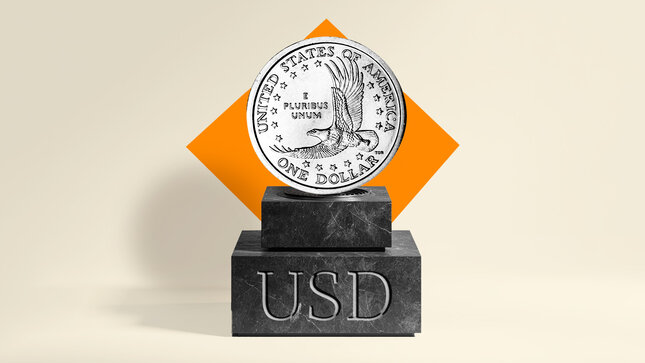Raising capital over the last 10 years has been relatively easy and inexpensive. This was due to the large impact of the 2008 financial crisis which led to low interest rates and cheap capital. Cheap capital triggered more risk taking from both investors and entrepreneurs, resulting in more debt and more risky assets in search for better financial returns. Abundant capital led also to unsustainable valuations particularly in tech startups.
From the regulation standpoint, the 2008 crisis led to unprecedented interest rate cuts and massive Quantitative Easing (QE) intervention from Central Banks, particularly in the US and the EU. QE strengthened bank reserves, provided banks with more liquidity, and encouraged lending and investment. As a result, the price everyone paid to borrow money was distorted leading to more risk taking. After 12 years of distorted zero percent interest rates, cheap capital is gone, and entrepreneurs need to cope with higher cost of capital, and potentially tougher fund- raising.
Fund-raise during a crisis?
A continuing decline in pre-seed, series A and series B capital raise in the United States is well understood. As an entrepreneur, it is important to learn how to operate during times of crisis and market volatility. While raising capital during or after a financial crisis is harder, there are ways to do it. If you’re raising seed investments to launch your startup, or if you need advice on how to fund-raise after 2 years of crisis, here are a few pointers that can accelerate your business growth ensuring that you secure strategic investments.
Be creative finding the investors
I have argued that it is tougher to raise capital during a downturn. But I have also argued that there are billions of investment funds waiting to be allocated seeking disciplined entrepreneurs. Many investors are countercyclical, and many shrewd investors know that great investments are done during recession when businesses are suffering. The money investors hold in their banks is earning an insignificant return and what they’re looking for are investment opportunities that address today and future challenges. Crises are times to be proactive and be relentless investing in new connections and new relationships. Startups that succeed are those that “show- up”.
Focus on sustainability and diversity
One of the differentiators that can help you fund-raise is to show that your company is committed to decarbonizing the global economy and integrating Environmental, Social and Governance (ESG) priorities in your business model. This means that you have a gender balance approach to staffing, you have a diverse board, and you are aiming to address society’s challenges. Believe it or not, ESG focused companies are more likely to get funded in the current market, as investors and consumers want more transparency, equity, and sustainability.
Ignore the recession
Worrying and complaining about things beyond your control just makes you miserable and less effective running your business. Past crises show that the average Seed round size dropped during the 2000s dot-com bubble and 2008 financial and economic crises, but the total amount of money invested in early-stage startups increased. Overall, remember that the pandemic crisis wasn’t a crisis for start-up funding. Global venture capital more than doubled in 2021 compared to 2022, with most of the capital being invested in the tech industry. Having said that, smaller investment tickets will be more challenging, but good balance sheet discipline, product management and strategic planning should let entrepreneurs thrive during the ongoing crisis.
Final advise
Even if you are convinced you need money to launch or expand your business, you probably don’t. Raising money should be your last resort unless you need capital to fund growth. Put in as much sweat equity as you can and grow your customer base as this is the best way to fund your growth. In other words, tap into every resource you must grow your business before you talk to a more speculative investor.
All information posted is for educational and information use only, and it should never replace professional advice. Should you decide to act upon any information in this article, you do so at your own risk.
Editors’ Picks

EUR/USD Price Annual Forecast: Growth to displace central banks from the limelight in 2026 Premium
What a year! Donald Trump’s return to the United States (US) Presidency was no doubt what led financial markets throughout 2025. His not-always-unexpected or surprising decisions shaped investors’ sentiment, or better said, unprecedented uncertainty.

US Dollar Price Annual Forecast: 2026 set to be a year of transition, not capitulation Premium
The US Dollar (USD) enters the new year at a crossroads. After several years of sustained strength driven by US growth outperformance, aggressive Federal Reserve (Fed) tightening, and recurrent episodes of global risk aversion, the conditions that underpinned broad-based USD appreciation are beginning to erode, but not collapse.

GBP/USD Price Annual Forecast: Will 2026 be another bullish year for Pound Sterling? Premium
Having wrapped up 2025 on a positive note, the Pound Sterling (GBP) eyes another meaningful and upbeat year against the US Dollar (USD) at the start of 2026.

Gold Price Annual Forecast: 2026 could see new record-highs but a 2025-like rally is unlikely Premium
Gold hit multiple new record highs throughout 2025. Trade-war fears, geopolitical instability and monetary easing in major economies were the main drivers behind Gold’s rally.

Top 10 crypto predictions for 2026: Institutional demand and big banks could lift Bitcoin
Bitcoin’s (BTC) adoption story is unraveling and the king crypto could see institutional demand return in 2026. Crypto asset managers like Grayscale are betting on Bitcoin’s rally to a new all-time high next year, and themes like Bitcoin as a reserve asset are emerging.
RECOMMENDED LESSONS
Making money in forex is easy if you know how the bankers trade!
I’m often mystified in my educational forex articles why so many traders struggle to make consistent money out of forex trading. The answer has more to do with what they don’t know than what they do know. After working in investment banks for 20 years many of which were as a Chief trader its second knowledge how to extract cash out of the market.
5 Forex News Events You Need To Know
In the fast moving world of currency markets where huge moves can seemingly come from nowhere, it is extremely important for new traders to learn about the various economic indicators and forex news events and releases that shape the markets. Indeed, quickly getting a handle on which data to look out for, what it means, and how to trade it can see new traders quickly become far more profitable and sets up the road to long term success.
Top 10 Chart Patterns Every Trader Should Know
Chart patterns are one of the most effective trading tools for a trader. They are pure price-action, and form on the basis of underlying buying and selling pressure. Chart patterns have a proven track-record, and traders use them to identify continuation or reversal signals, to open positions and identify price targets.
7 Ways to Avoid Forex Scams
The forex industry is recently seeing more and more scams. Here are 7 ways to avoid losing your money in such scams: Forex scams are becoming frequent. Michael Greenberg reports on luxurious expenses, including a submarine bought from the money taken from forex traders. Here’s another report of a forex fraud. So, how can we avoid falling in such forex scams?
What Are the 10 Fatal Mistakes Traders Make
Trading is exciting. Trading is hard. Trading is extremely hard. Some say that it takes more than 10,000 hours to master. Others believe that trading is the way to quick riches. They might be both wrong. What is important to know that no matter how experienced you are, mistakes will be part of the trading process.
The challenge: Timing the market and trader psychology
Successful trading often comes down to timing – entering and exiting trades at the right moments. Yet timing the market is notoriously difficult, largely because human psychology can derail even the best plans. Two powerful emotions in particular – fear and greed – tend to drive trading decisions off course.


